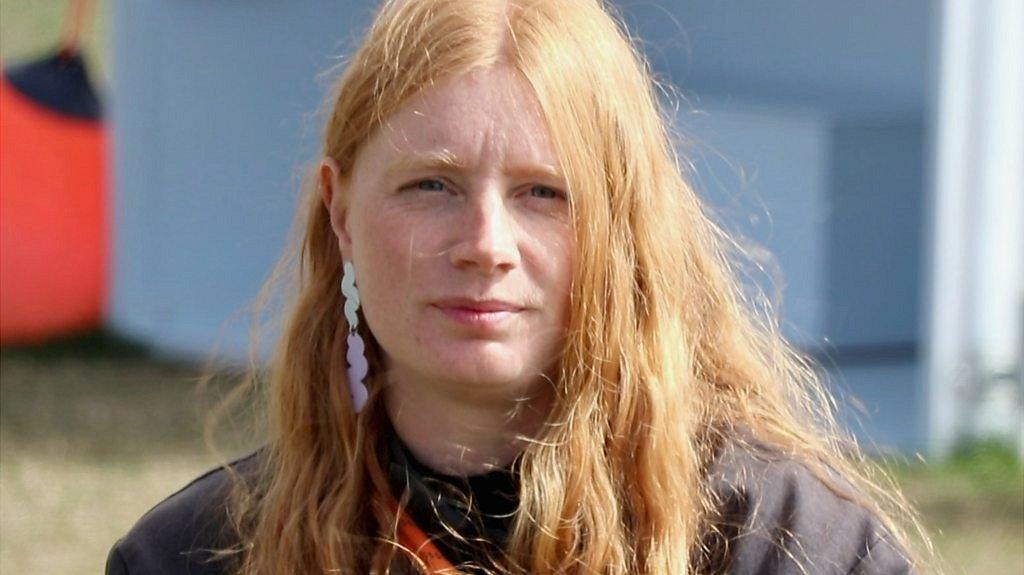Bereaved families need access to better support, report finds
- Published
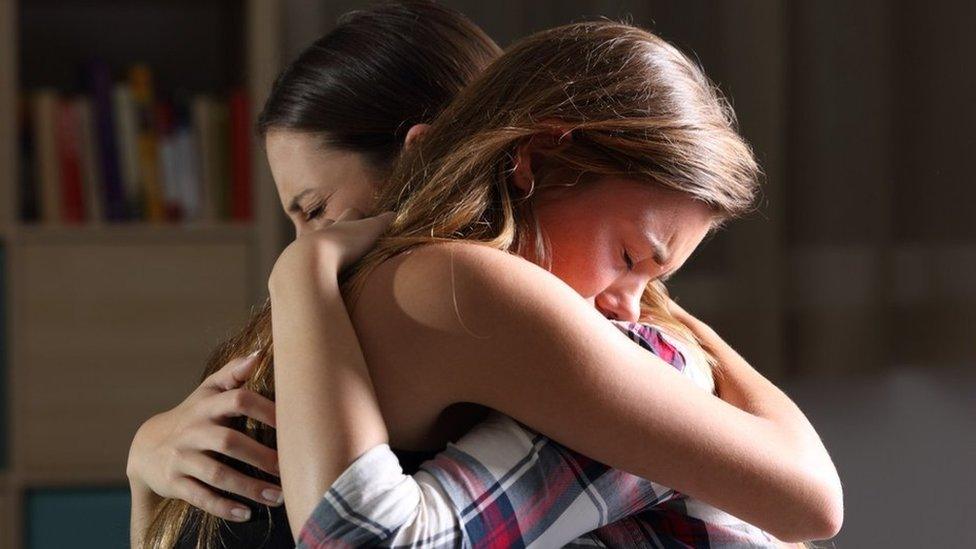
The report says many of the challenges facing bereaved people were brought into sharper focus during the pandemic
Bereavement support needs to be accessible to more people, according to the UK Commission on Bereavement (UKCB).
Among its findings is that the pandemic had a "profound impact" on those who lost a loved one.
The feeling of being alone in their grief during lockdown was "devastating".
The report found there were 750,000 excess bereavements in the UK, more than 16,000 in NI during the pandemic.
The UKCB recommended that support should be more widely available, including in schools, colleges and workplaces.
The findings follow one of the largest-ever consultations on bereavement support which included more than 1,000 adult and 100 child respondents to the surveys and evidence submitted from more than 130 organisations.

Josh Willis, from Londonderry, lost his wife, Samantha, during the Covid pandemic. She was 35 and died, with Covid, shortly after giving birth to their daughter, Eviegrace.
He said counselling had made a big different to him and his family with his daughter Liliana, five, receiving play therapy.
"At the time, things were obviously very difficult, and they still are 13 and a half months in. I don't think it'll ever change, especially when I have to look at the two wee ones, especially Eviegrace, and know that she'll never know her mother.
"So there's always going to be something whether it's a song or a birthday, or a party or First Communions or wedding days, sometime down the line.
"I knew there were things [counselling] out there, I just didn't know how to make contact; whether I wanted to make contact, sometimes it feels a wee bit embarrassing.
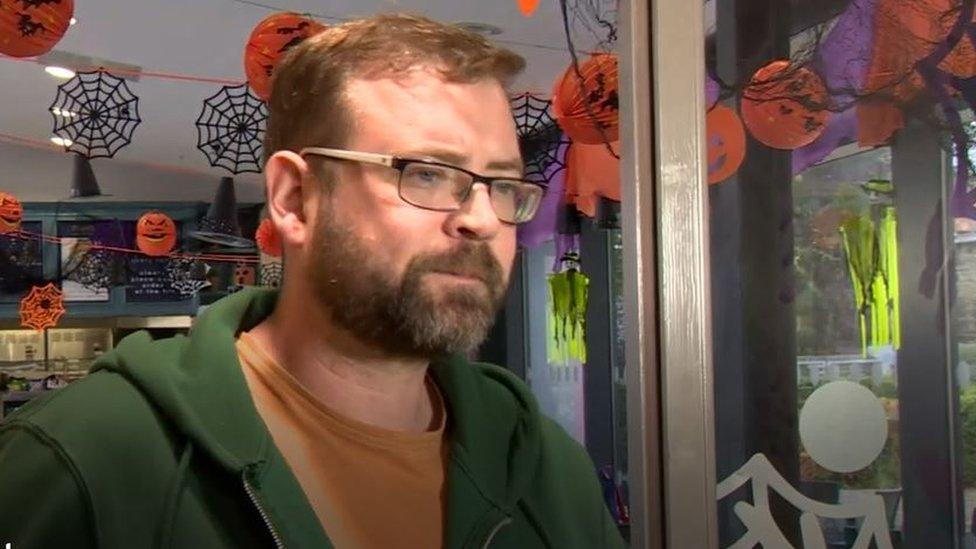
Josh Willis lost his 35-year-old wife, Samantha, during the pandemic
"I was a wee bit like that up until the day I started counselling. I'm still doing it now. I like it, I don't always talk about the death of my wife at it. It's just about things in general.
"But I would go as far as to say everybody should do it at some point and try it out. Whether it's work related, or family related or bereavement or just mental health in general.
"It was just by pure accident, really, that I found out. The health visitor for Eviegrace told me about play therapy for Liliana.
"So she done about 36 weeks of play therapy. It seemed to make a big difference to her. She's reasonably back to normal, playing-wise, jumping around and dancing and doing all what five-year-olds should be doing.
"So that definitely helped her. I'm maybe eight or 10 into mine [counselling]. So it seems to work."

Many of the challenges facing bereaved people were brought into sharper focus during the pandemic.
One woman in her fifties, whose husband died of Covid-19, said: "Eighteen months later, I still haven't sorted out financial affairs - life insurance, teachers' pension scheme. There are forms to fill in that I just can't get my head around. I'm very stressed about it."
Common issues among adults included feeling "unable to say goodbye the way they had wanted", "not being physically present when their loved one died", "a lack of support from professionals", and "social isolation and loneliness".
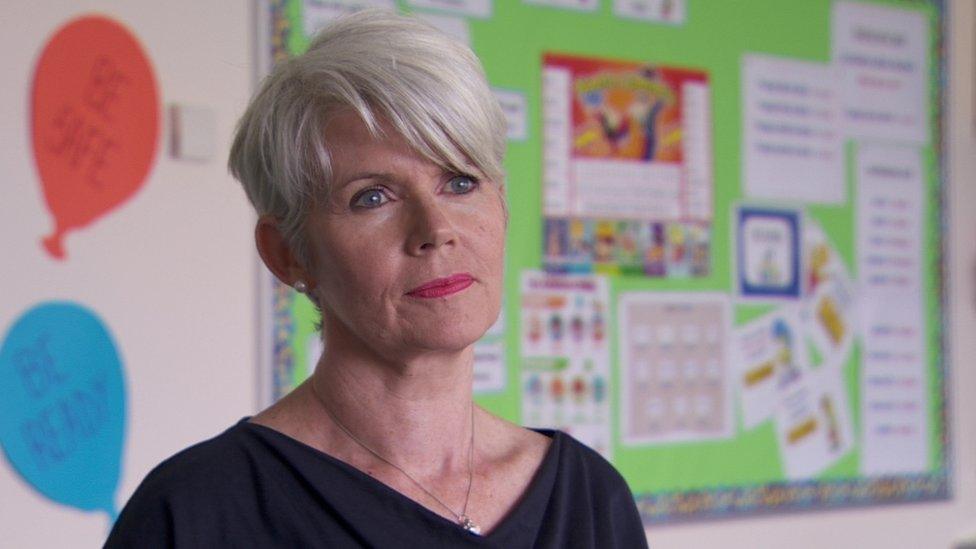
Joan McEwan from Marie Curie says funding is vital
Joan McEwan, associate director of policy at the end-of-life charity Marie Curie said: "Funding is vital to transform adults and children's experience of grief and bereavement.
"The administration that needs to be done after a death to wind down the person's affairs is often too complex, needless and can also be insensitive."
Ms McEwan said it was not surprising that half of the children who contributed to the survey said they did not receive adequate support from their school and college.
"Our recent bereavement counselling training for approximately 100 schools in Northern Ireland showed that teachers do want to support those children and young people who have been bereaved and to help them navigate their school and college life after they have lost someone close to them," she added.
Grief seen as a 'taboo'
The consultations by the UK Commission on Bereavement took place between Autumn 2021 and March 2022.
The commission's chair, the Right Rev Dame Sarah Mullally, said it was "incumbent upon us all to work together to improve the experiences of bereaved people".
She also said that by making grief "taboo", by fearing it and locking it away it becomes harder for people to access the practical and emotional support.
The report sets out how this can be achieved from ensuring that employers support bereaved staff and education settings provide the opportunity for young people to learn about coping with death, through to ensuring financial support is made accessible.
To deliver all this, Dame Sarah said governments throughout the UK must establish and deliver a cross-departmental strategy for bereavement as a human right.
The strategy should involve the voices of bereaved people, and draw from learning from the pandemic to setting out how people including workforces will be supported in future mass bereavement events.

UKCB's key findings were:
6.8m people were bereaved in the UK in 2020 and 2021 compared to 6.1 m in 2018 and 2019 with 750,000 additional bereavements.
More than a quarter of adult respondents to the consultation received no support from family and almost half (46%) received no support from friends following bereavement.
More than 40% of those who wanted formal bereavement support did not get any.
The report sets out 25 recommendations including:
All schools and education settings must provide age-appropriate opportunities for children and young people to learn about coping with death and bereavement as part of life.
New legislation must require that all employers have a bereavement policy.
Statutory bereavement leave and pay entitlement of two weeks must be extended to encompass all close relationships
The report concluded that there is not enough formal emotional support and what is there is not accessible to all who need it.

Related topics
- Published22 August 2022
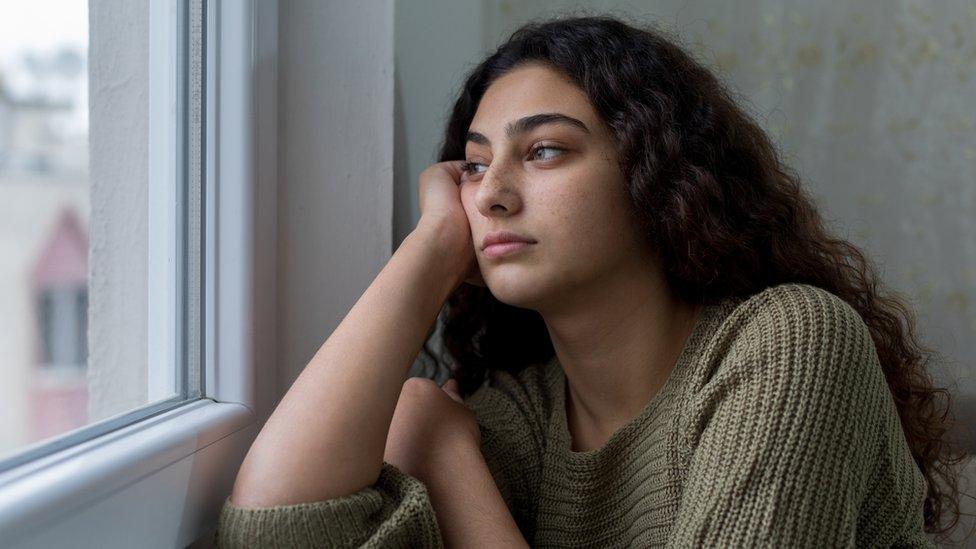
- Published4 September 2022
